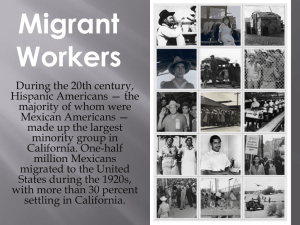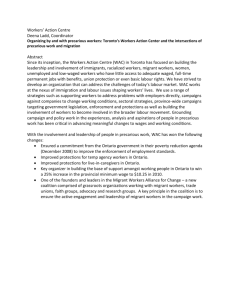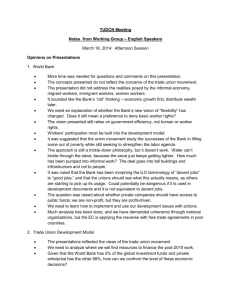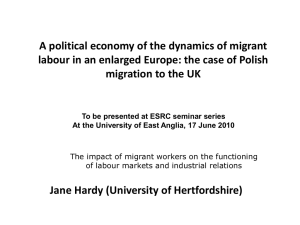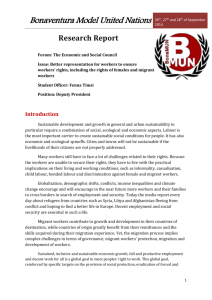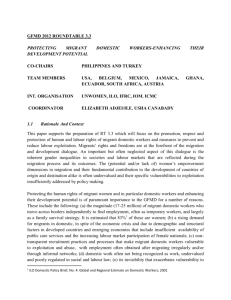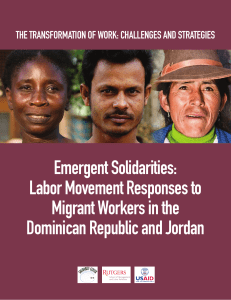Zimbabwe-South Africa-Lesotho Declaration
advertisement
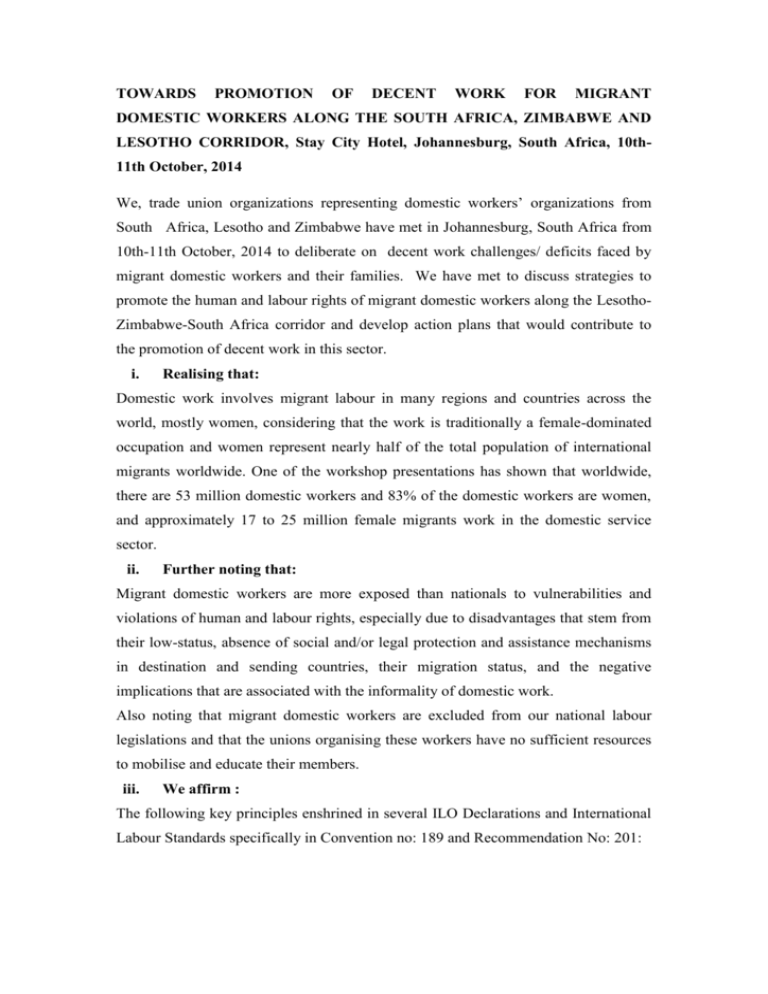
TOWARDS PROMOTION OF DECENT WORK FOR MIGRANT DOMESTIC WORKERS ALONG THE SOUTH AFRICA, ZIMBABWE AND LESOTHO CORRIDOR, Stay City Hotel, Johannesburg, South Africa, 10th11th October, 2014 We, trade union organizations representing domestic workers’ organizations from South Africa, Lesotho and Zimbabwe have met in Johannesburg, South Africa from 10th-11th October, 2014 to deliberate on decent work challenges/ deficits faced by migrant domestic workers and their families. We have met to discuss strategies to promote the human and labour rights of migrant domestic workers along the LesothoZimbabwe-South Africa corridor and develop action plans that would contribute to the promotion of decent work in this sector. i. Realising that: Domestic work involves migrant labour in many regions and countries across the world, mostly women, considering that the work is traditionally a female-dominated occupation and women represent nearly half of the total population of international migrants worldwide. One of the workshop presentations has shown that worldwide, there are 53 million domestic workers and 83% of the domestic workers are women, and approximately 17 to 25 million female migrants work in the domestic service sector. ii. Further noting that: Migrant domestic workers are more exposed than nationals to vulnerabilities and violations of human and labour rights, especially due to disadvantages that stem from their low-status, absence of social and/or legal protection and assistance mechanisms in destination and sending countries, their migration status, and the negative implications that are associated with the informality of domestic work. Also noting that migrant domestic workers are excluded from our national labour legislations and that the unions organising these workers have no sufficient resources to mobilise and educate their members. iii. We affirm : The following key principles enshrined in several ILO Declarations and International Labour Standards specifically in Convention no: 189 and Recommendation No: 201: Human rights including International Labour Standards are the overall framework for the protection of all workers, including migrant domestic workers Domestic work is work with value Domestic workers have human and labour rights independently from their nationality, sex, ethnicity and socio-economic background. a) Also recognizing that: The specific nature of domestic work, specifically the unique needs and vulnerable, irregular status of migrant workers exposes them to risk of exploitation and abuse. While there is a landmark treaty, C189 which was passed and adopted by the ILO conference in Geneva on 16 June 2011, only one (1) out of the three countries has ratified C189; That the ILO initiated Decent Work country programmes is a foundation for the fight to improve the conditions for migrant domestic workers; That our lack of cooperation as countries and lack of review ,implementation and monitoring of migration policies and legislation continues to negate the progress towards achieving decent work for migrant domestic workers; b) We appreciate The goals outlined in the ILO Global Action Programme on Migrant Domestic Workers and Their Families, the studies commissioned by ILO department do an in depth country profile on Migrant Domestic Workers c) And therefore resolve to: Support and strengthen capacity of national unions for domestic and migrant domestic workers; Lobby the Heads of State of South Africa, Lesotho and Zimbabwe through the Employment labour Sector (ELS) to ratify and implement C189; Lobby our three governments to continue to implement their decent work country programmes incorporating rights of migrant workers; and That where domestic and migrant domestic workers are not organised, we must establish domestic workers unions; Ensure that domestic workers organised and support migrant domestic workers d) And also resolve to use the following approaches: That We request ILO, ITUC, IDWF to provide technical and financial support to our Federations and affiliates responsible for organizing and protecting the rights of domestic workers; We must popularize C189 through electronic and print media; Should always include participation of representatives from the respective domestic workers affiliate unions. Agreed to strengthen cooperation between unions in the 3 countries. To mobilise support from other unions within our own countries and federations.


